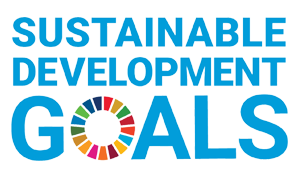Pallavi Gupta, PhD; Ambarish Datta; Satyanarayan Kothe, PhD, University of Mumbai
This paper introduces a simple framework for developing work-based technical skills and enhancing employability skills in vulnerable youth from disadvantaged backgrounds. The purpose is to ascertain that sustainable skills development is not just provision of technical skills but also developing resilience in the form of future identity, motivation and a sense of self-worth. Framework is outlined as a ‘logic model’ that serves as a blueprint of pilot intervention conducted over a period of five months. It illustrates relationships between activities and outcomes with emphasis on outcome evaluation. Quasi-experiment research is designed to assess the differences in outcomes for experimental and comparison groups. Data is collected in three phases using qualitative and quantitative metho...
Read more
David Peón*, Xosé-Manuel Martínez-Filgueira, José-Luís Rodríguez-Gómez, Universidade da Coruña/ Toronto Metropolitan University
Professional certifications represent for many university degrees, especially postgraduate degrees, a recognition of their academic quality and the future employability of the graduates. This article contributes to the analysis of the impact of external accreditations on students’ perception of employability and satisfaction. We offer a case of study, a Master of Science (MSc) in Banking and Finance that became the first academic degree in Spain to obtain the two professional accreditations required for employees in financial institutions since 2019. A survey to a sample of students who graduated two academic years before and two years after the MSc was recognised is used to measure students' motivations for enrolment and satisfaction. The results provide significant evidence that profes...
Read more
Irene Blanco-Gutierrez; Paloma Esteve, Universidad Politécnica de Madrid
Double Degrees play an important role in the current landscape of higher education.
1. UPM Double Degrees combining technical and business disciplines are still at an early stage.
2. Academic contents are biased towards technical disciplines rather than business.
3. Students prefer technical modules, but value business contents for employability.
Read more
Guinevere Gilbert; Michelle Turner; Omid Haass, RMIT University
The successful acquisition of employment is influenced by a number of parameters, including the individual's perception that they are employable. This research uses sequential mixed methods to measure the perceived employability of commencing undergraduate students of a project management degree at an Australian university. Participants had lower scores on all employability dimensions in comparsion to students who had already commenced their degree, with the exception of collaboration. Gender differences emerged, with females having lower levels than males on the commencement readiness and lifelong learning dimensions. Students did not link previous work experience to perceived employability, and employability was not framed within a project management context for commencing students. Find...
Read more


